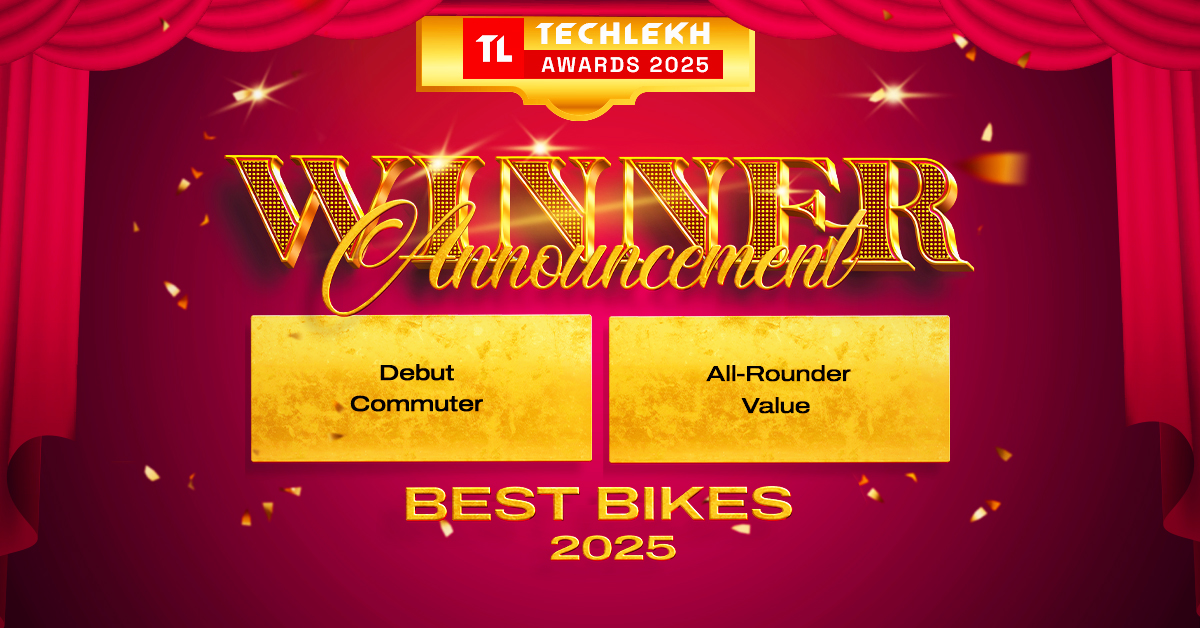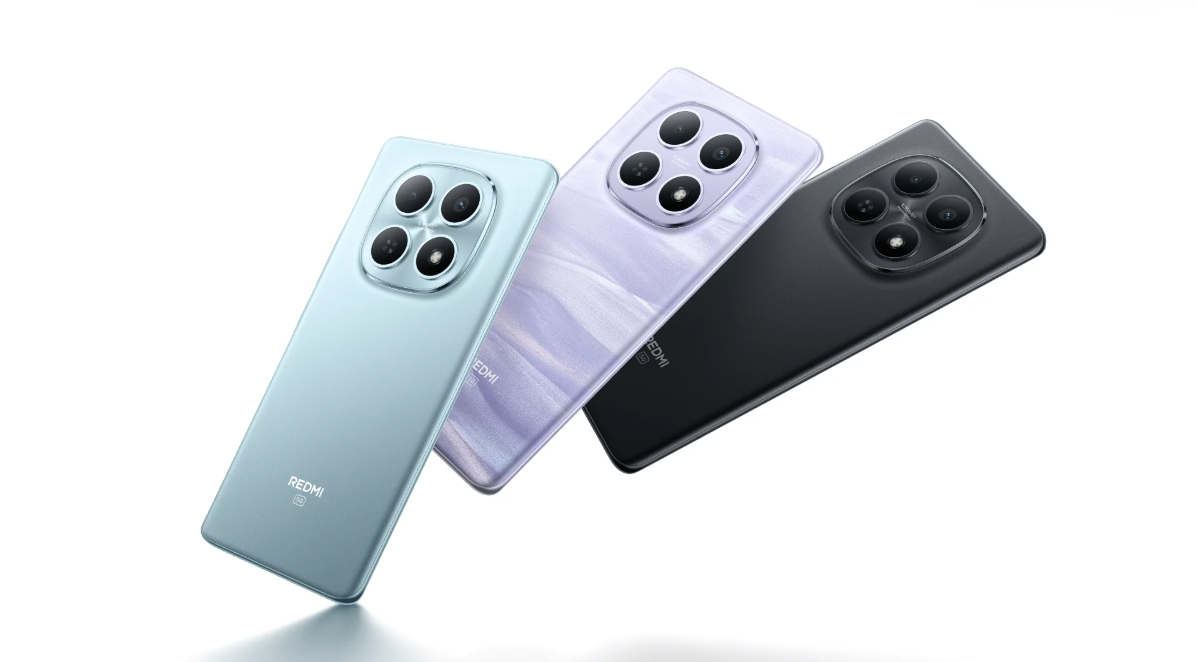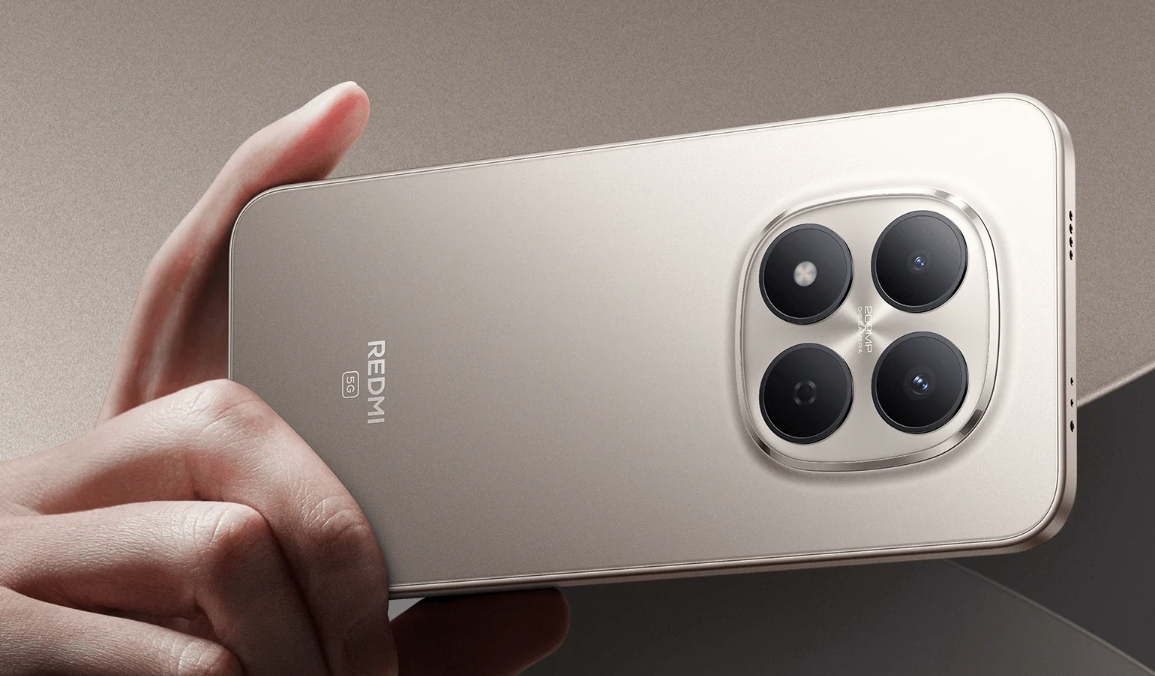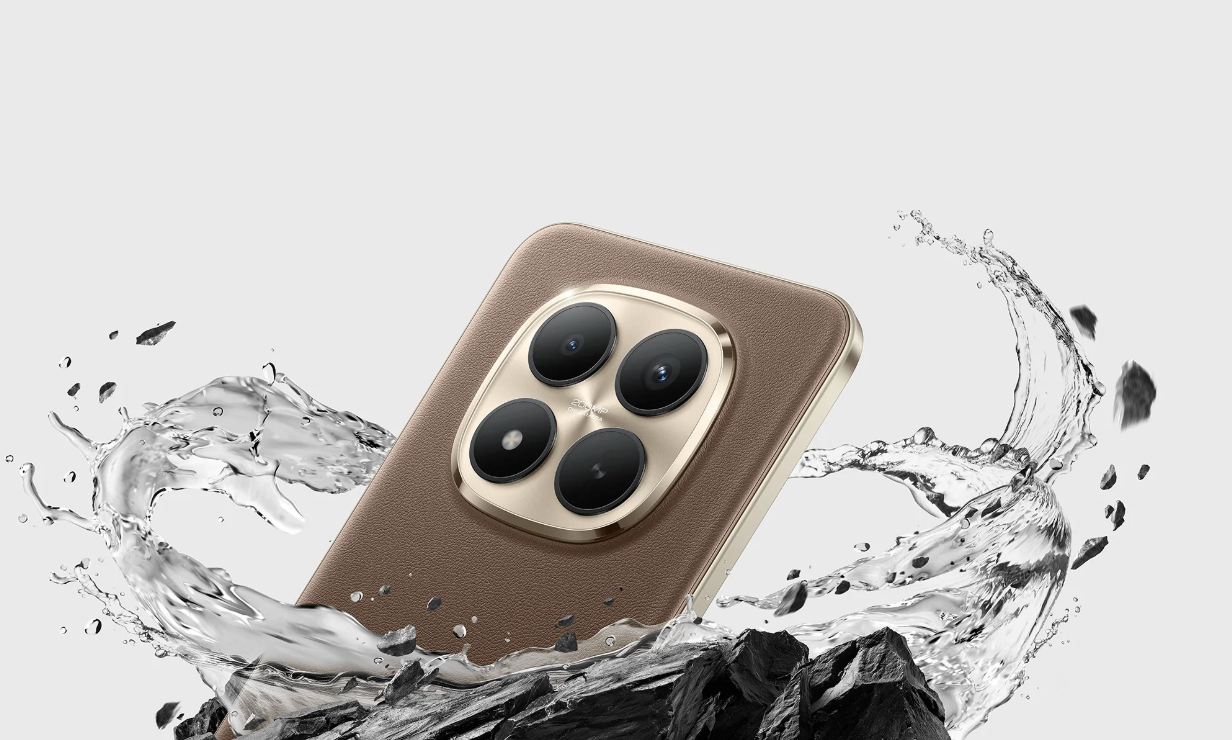Pros
- Impressive 120Hz AMOLED Display
- Good Camera Setup
- Good Performance
- Decent Battery Life
- One UI is Fluid
Cons
- Polycarbonate Back
Samsung Nepal recently launched the Samsung S21 series and among them, Samsung S21 is the company’s affordable flagship. It comes as an upgrade to the Samsung S20.
Samsung Galaxy S21 is Samsung’s cheapest flagship that is rocking a 120Hz display, Exynos 2100, Triple camera setup, and 4000 mAh battery.
I have been using this for almost a month now and this is my Samsung Galaxy S21 Review.
Samsung Galaxy S21 Specifications
- Body: 151.7 x 71.2 x 7.9 mm, 169 g (Sub6), 171 g (mmWave), Dual SIM (Nano-SIM and/or eSIM, dual stand-by)
- Display: 6.2″ FullHD+ Dynamic AMOLED 2X, 1080 x 2400 pixels,120Hz, HDR10+, 1300 nits (peak)
- Protection: Corning Gorilla Glass Victus (front)
- Chipset: Exynos 2100 (5 nm)
- CPU: Octa-core (1×2.9 GHz Cortex-X1 & 3×2.80 GHz Cortex-A78 & 4×2.2 GHz Cortex-A55)
- GPU: Mali-G78 MP14 GPU
- Memory: 256GB 8GB RAM, UFS 3.1
- OS: Android 11, One UI 3.1
- Rear Camera: 12 MP, f/1.8, 26mm (wide), 1/1.76″, 1.8µm, Dual Pixel PDAF, OIS
- 64 MP, f/2.0, 28mm (telephoto), 1/1.76″, 0.8µm, PDAF, OIS, 1.1x optical zoom, 3x hybrid zoom
- 12 MP, f/2.2, 13mm, 120˚ (ultrawide), 1/2.55″ 1.4µm, Super Steady video
- Video: 8K@24fps, 4K@30/60fps, 1080p@30/60/240fps, 720p@960fps, HDR10+, stereo sound rec., gyro-EIS
- Front Camera: 10 MP, f/2.2, 26mm (wide), 1/3.24″, 1.22µm, Dual Pixel PDAF
- Video: 4K@30/60fps, 1080p@30fps
- Battery: Non-removable Li-Po 4000/4800(S21+) mAh battery, Fast Charging 25W, USB Power Delivery 3.0, Fast Qi/PMA wireless charging 15W, Reverse wireless charging 4.5W
- Misc: Fingerprint (under display, ultrasonic), accelerometer, gyro, proximity, compass, barometer
- Colors: Phantom Grey, Phantom Violet
Samsung Galaxy S21 Price in Nepal: Rs. 1,09,999 (8/256GB)
Samsung Galaxy S21 Review
Design
- 151.7 x 71.2 x 7.9 mm
- 169 g (Sub6), 171 g (mmWave)
- Dual SIM (Nano-SIM and/or eSIM, dual stand-by)
Unlike the Samsung S21+ and S21 Ultra Samsung S21 gets a plastic back just like the Note 20. But I did not have any problem with this thing during my entire usage period of 3 weeks.
The polycarbonate back has the same haze finish used on the S21 Ultra and it feels premium even though it is not glass.
I like the new contour cut camera design that blends the camera module to the side frame. It makes the device look smooth unlike the last year’s Note 20.
The rear back has a matte finish and fingerprints do not show up quite easily. It is also IP68 rated for water and dust resistance.
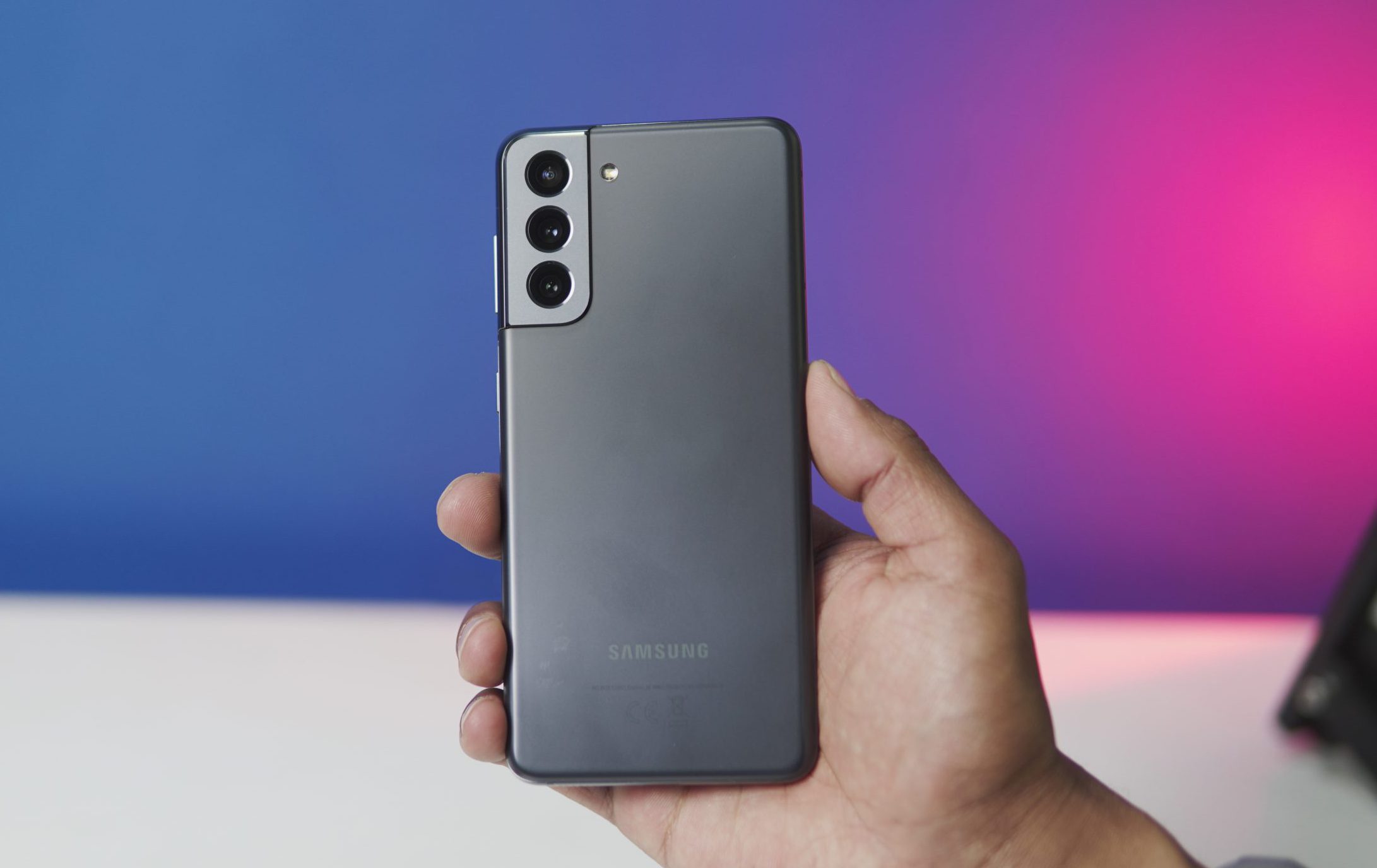
On the front, it has a hole-punch in the middle of the screen. The bezels are slightly reduced and the screen is now flat. This is a welcome addition as it cuts down the repair cost if broken.
As usual, S21 gets an ultrasonic fingerprint sensor and it is 1.5 times larger than the previous generation. It is faster and has improved consistency. But sometimes the sensor did not register my fingerprint. However, it is better than the previous generation.
ALSO READ: Samsung S21 Ultra Available for Pre-Booking in Nepal with Exciting Offers
What’s not good is the exclusion of a micro SD card. I realized the importance of micro SD when I tried to upload videos from my mobile phone. I was going to place the micro SD on the S21 only to realize that it does not have a micro SD slot.
The phone is small and it only weighs about 169gms. It feels very compact and sleek. If you want a phone with a small footprint, then this is it.
Impressive High Refresh Rate Dynamic AMOLED Display
- 6.2″ FullHD+ Dynamic AMOLED 2X
- 1080 x 2400 pixels,120Hz, HDR10+
- Corning Gorilla Glass Victus Protection
Samsung has gone with a 1080p AMOLED panel this time on the S21. But, it is an adaptive refresh rate panel that switches between 48-120Hz.
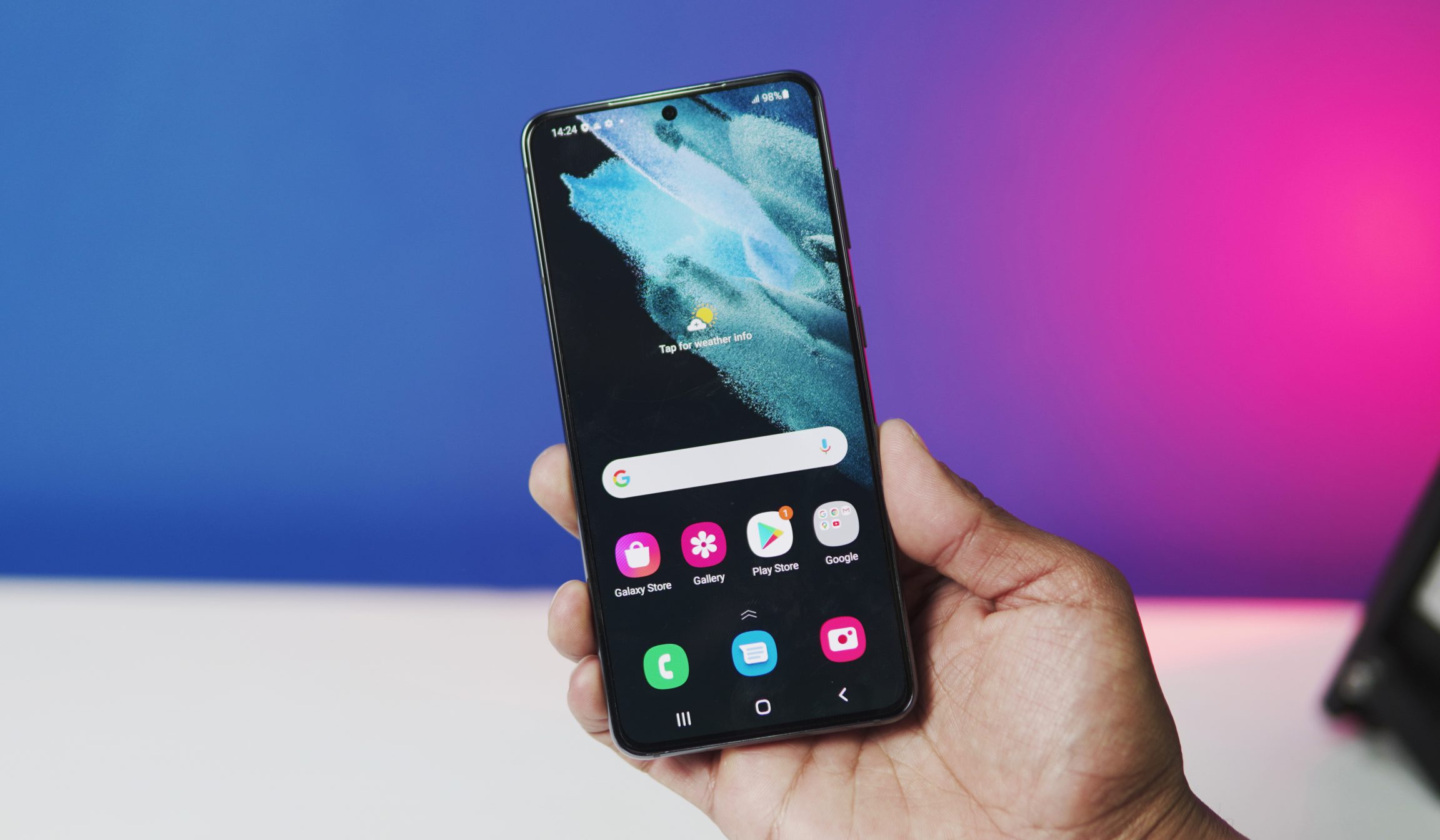
The 1080p panel did not feel like a downgrade as it does on paper. The pixel density is good because its screen size is also small.
The colors of the AMOLED panel are as you expect from Samsung with a saturated profile. It has a peak brightness of 1300 nits when viewing HDR contents and it is easily usable outdoors.
The 120Hz refresh rate feels slick and smooth. The refresh rate mostly stays at 120Hz when you are touching the panel or using any apps or scrolling. It will go down to 60Hz after 4 sec of idle time. Also, it stays at 60Hz when you are watching a normal YouTube video.
Exynos 2100 is a Huge Improvement
- Exynos 2100 (5 nm)
- Octa-core (1×2.9 GHz Cortex-X1 & 3×2.80 GHz Cortex-A78 & 4×2.2 GHz Cortex-A55)
- Mali-G78 MP14 GPU
- 256GB 8GB RAM, UFS 3.1
Samsung has been hyping up the Exynos 2100. They even held a separate event for the Exynos 2100.
Exynos 2100 is a 5nm chipset that is similar to the Snapdragon 888. Both of them use the same architecture and CPU. The major difference is their GPU.
Exynos 2100 uses ARM’s X1 prime core clocked at up to 2.91 GHz alongside a trio of Cortex-A78 cores running at 2.8GHz and four power-efficient Cortex-A55 cores working at 2.21GHz. It uses the ARM Mali-G78MP14 GPU. Along with this, it now has 8GB RAM and 256GB storage.
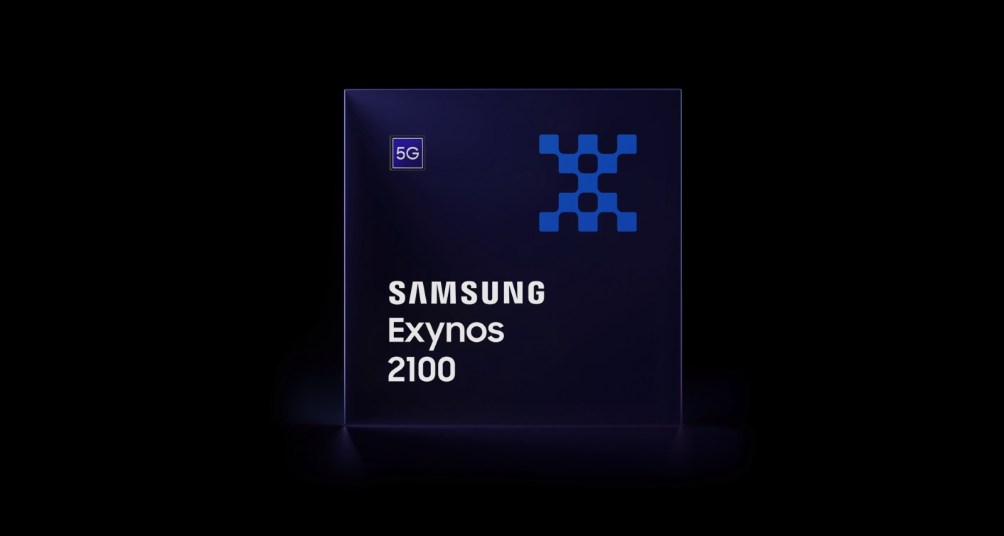
If you look at it, Samsung has even managed to clock the CPU higher than the Snapdragon 888. Interms of benchmark, it was able to get a single-core score of 1069 and a multi-core score of 3213 on GeekBench. If you look up the score of Snapdragon 888, then it is higher than that of the Exynos 2100.
For gaming, I tested COD Mobile and PUBG Mobile thoroughly. COD Mobile runs on Max graphics with Max FPS with very good frame rate consistency.
COD Mobile runs on 60fps with a very good frame rate consistency. The frame rate is consistent on TDM but I did notice slight frame drops in Battle Royale Mode. As for PUBG Mobile, you can play up to HDR graphics. For the extreme fps option, you need to play on smooth graphics. PUBG Mobile maintains a very good frame rate on the extreme fps option.
About the heating problem, it is non-existent. While the Note 20 series felt warm after gaming for 15 min, the S21 doesn’t feel that way and there are no throttling issues.
Similar Camera Setup
- Rear Camera: 12 MP, f/1.8, 26mm (wide), 1/1.76″, 1.8µm, Dual Pixel PDAF, OIS
- 64 MP, f/2.0, 28mm (telephoto), 1/1.76″, 0.8µm, PDAF, OIS, 1.1x optical zoom, 3x hybrid zoom
- 12 MP, f/2.2, 13mm, 120˚ (ultrawide), 1/2.55″ 1.4µm, Super Steady video
- Video: 8K@24fps, 4K@30/60fps, 1080p@30/60/240fps, 720p@960fps, HDR10+, stereo sound rec., gyro-EIS
- Front Camera: 10 MP, f/2.2, 26mm (wide), 1/3.24″, 1.22µm, Dual Pixel PDAF
Samsung Galaxy S21 is rocking a similar camera setup as the Samsung Note 20. It has 3 cameras on the rear with a 12MP main sensor, a 64MP telephoto lens, and a 12MP ultrawide angle sensor.
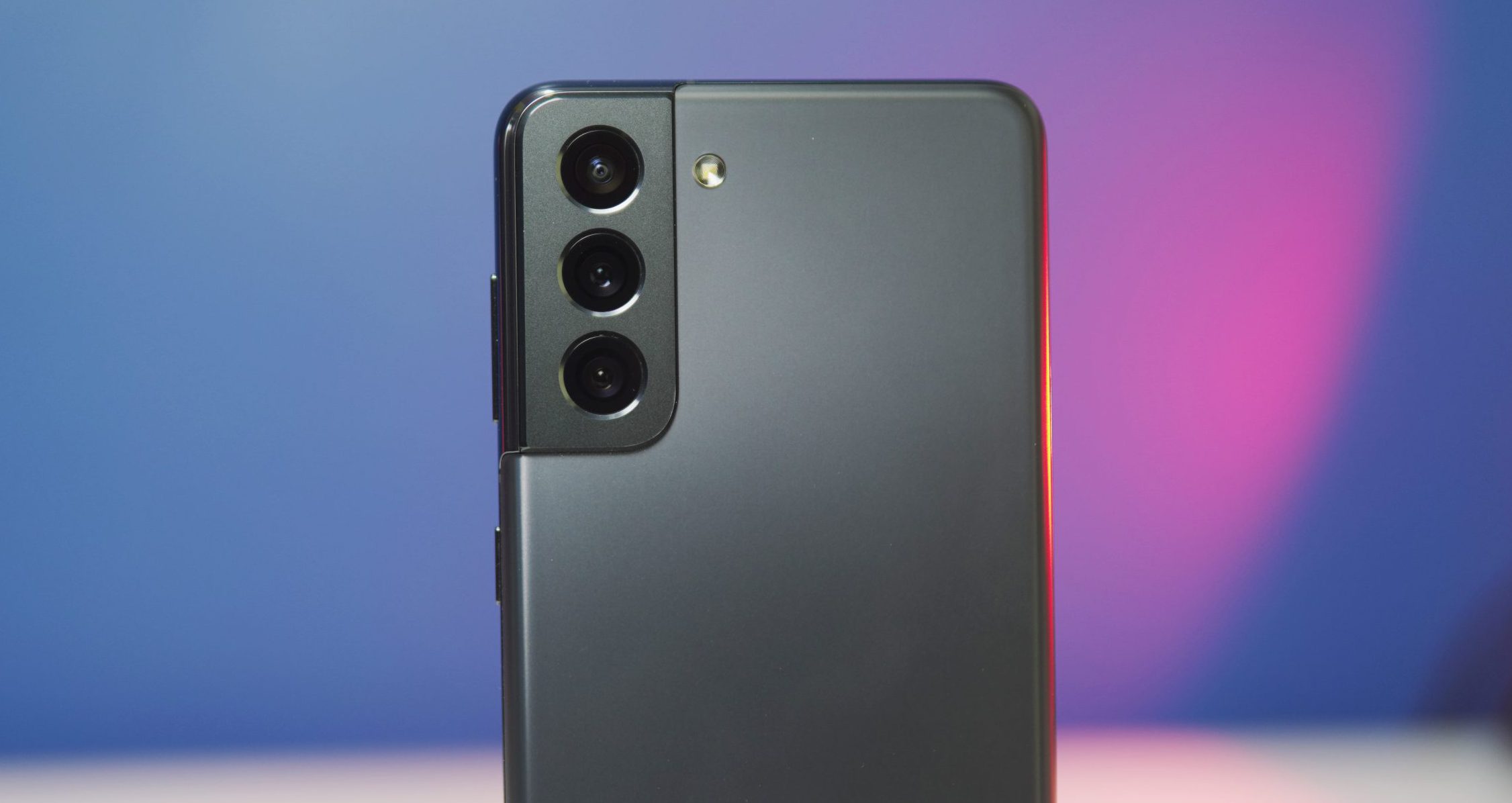
More than anything else, the dynamic range of the S21 feels a lot better than the S20 and Note 20.
DAYLIGHT PHOTOS
Photos from the main sensor have an excellent dynamic range and photos have good detail along with the saturated color profile.
The ultrawide angle images also look sharp with nice detail. However, the dynamic range on the S20 feels better than the S21 when it comes to ultrawide angle. Moreover, distortion correction is really good on the ultrawide photos.
The 64MP photos have good detail and the dynamic range also doesn’t take a hit but the contrast is not as good as normal photos.
ZOOM
S21 takes zoom photos from the 64MP sensor and crops them. The 2X shots are almost identical in quality to the normal photos with minimum loss in detail. The 3X photos are also quite good but there’s some upscaling on 3X photos. You will notice a slight loss in detail but it is still pretty good.
You can go 10X, 20X, and up to 30X but photos lose quality at this zoom range. You can use it to take a closer look at the subject but it is not usable.
LOW LIGHT
Even without night mode, the details of low-light photos are good. Noise reduction doesn’t seem too aggressive which helps to preserve detail but this leads to graininess. Exposure is nice and the dynamic range is also pretty wide.
Night mode helps to reduce noise but it will lead to loss of detail. It does help to lift shadows and mid-tones though. Also, exposure is better with the night mode.
The ultrawide angle sensor also does a decent job in low light conditions but you will notice noise and loss in detail. The night mode significantly improves the ultrawide photos. And same is the case with the zoom photos.
PORTRAIT
There are two zoom levels on portrait mode. On the default zoom level, the photo is captured by the 64MP sensor which captures pleasing portraits with good details, nice background blur, and excellent edge detection. It can also do a good job to identify complex things like hairs.
If you capture with the wide zoom level then the photos do not have good background blur and the edge detection is also not perfect. The portrait mode does a decent job even at night. And, it is also effective for non-human subjects.
SELFIES
S21 takes sharp selfies with a natural color tone which is unlike Samsung. The dynamic range is wide but the color is not as saturated as the main sensor. Portrait photos look nice with good background blur and great edge detection. The front camera can also keep highlights under control.
Video
As for videos, it is capable of capturing videos up to 4k 30fps from all three sensors and up to 8K 24fps from the main sensor. You get to capture 4k 60fps videos from all the lenses except the 64MP sensor.
4k 30fps videos have really nice detail with pleasing colors and excellent dynamic range. The stabilization is also good. The 4k 60fps footages lose detail and you will notice some noise. But 60fps videos are smoother than 30fps videos.
Battery
- Non-removable Li-Po 4000mAh battery
- Fast Charging 25W, USB Power Delivery 3.0
- Fast Qi/PMA wireless charging 15W
- Reverse wireless charging 4.5W
Samsung Galaxy S21 has a 4000 mAh battery along with 25W fast charging. As of now, I have been able to get a day of battery life from the S21. On average, it can provide up to 5 hours of screen on time with an adaptive refresh rate.
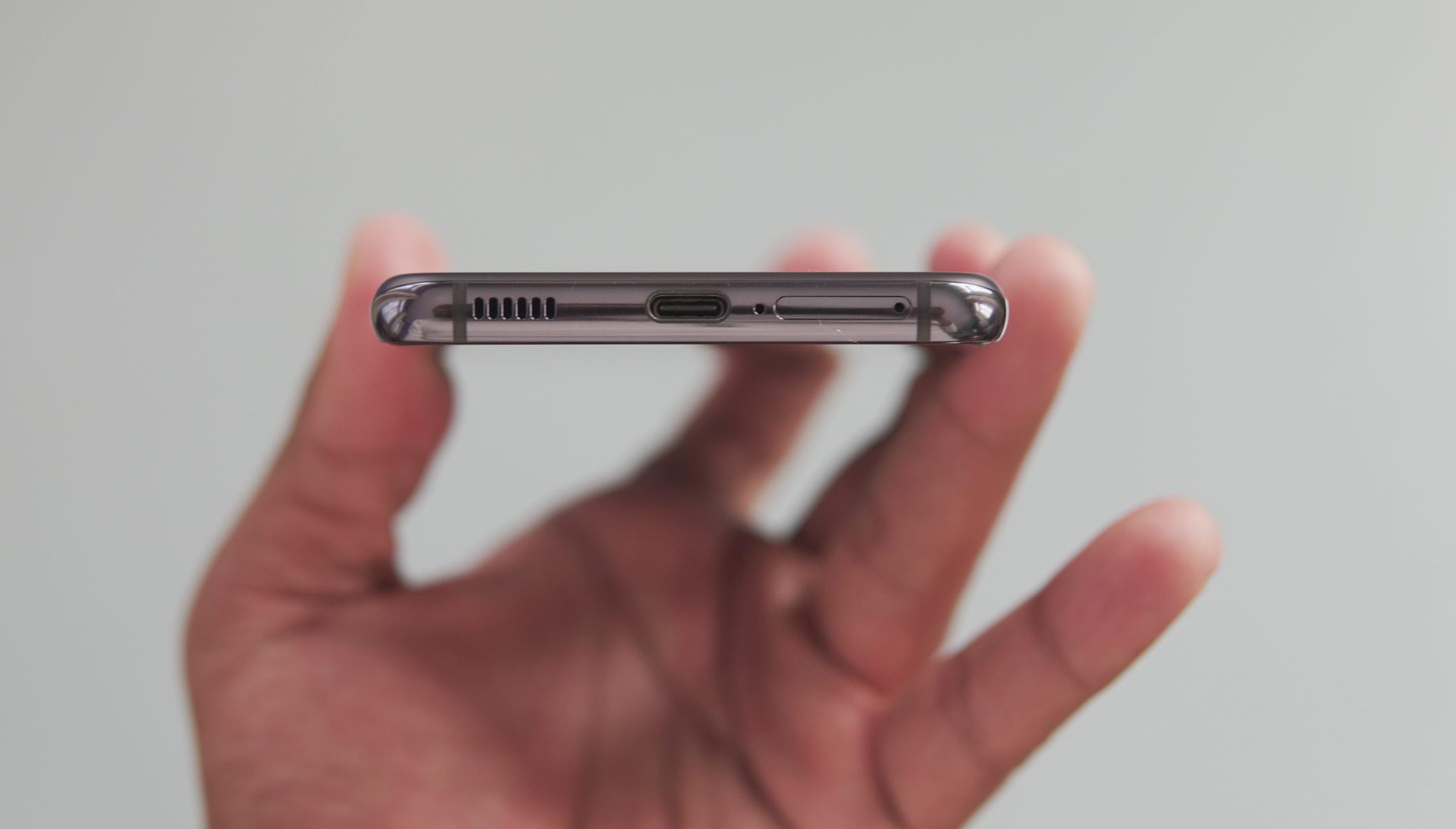
As for the charging, Samsung claims that the 25W charger can charge it from 0 to 100 in about 1 hour and 13 mins.
Speaker
There’s a dedicated speaker on the bottom and the earpiece works as a second speaker. The audio quality from the combination of these two is really good. The vocals sound clean and the highs are kept under control. The bass is limited though.
DON’T MISS: Tecno Pova with Helio G80 and Quad Camera Launched in Nepal
Software
On the software side of things, it has Android 11 along with One UI 3.1. One of the cosmetic changes that you will immediately notice is the new notification shade. It is now transparent and you can easily add a notification toggle with the plus button at the end.
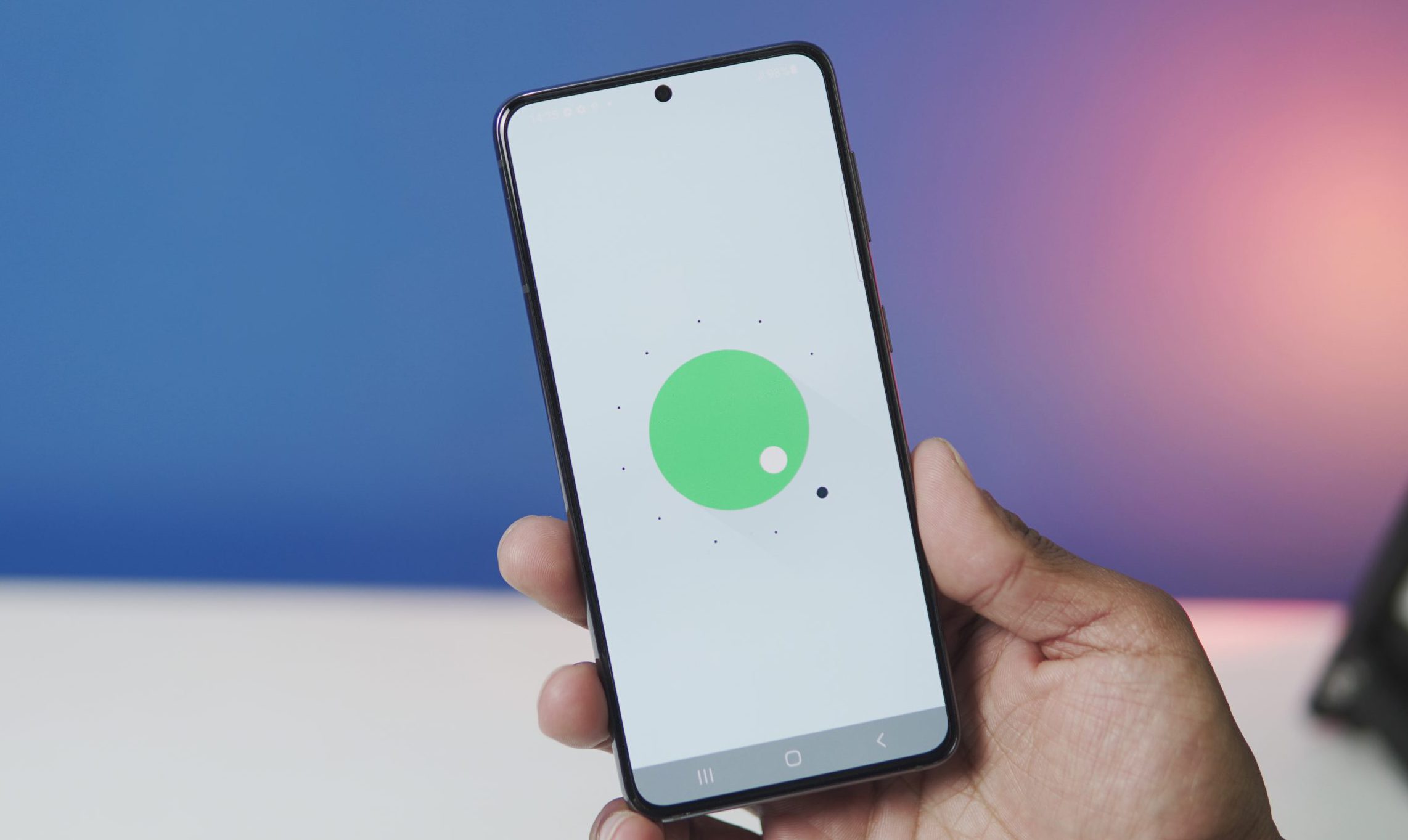
Some of the other major change comes in terms of camera features. It has improved the single-take feature and the new director mode is probably the best addition. You can now easily switch between all three lenses on a fly. Moreover, you can also capture from the front camera simultaneously with the director’s view.
Then there’s the zoom lock feature. This feature helps to stabilize the camera when capturing zoomed-in pictures.
Final Thoughts
The design of the Samsung Galaxy S21 feels better than that of the S20. Even though it uses a plastic rear, the material seems to be a semi-premium one. However, at this price, a glass back would have made more sense.
As for performance, Exynos 2100 might be behind the Snapdragon 888, but it doesn’t disappoint in real-life usage. Exynos 2100 is a good improvement over the Exynos 990. Furthermore, the camera setup of the S21 feels refined than that of the Note 20 or the S20.
At last, if you’re looking for a compact flagship phone that can do it all, you should definitely get the S21.
What’s your take on the Samsung Galaxy S21? Let us know in the comments below!
READ NEXT: Samsung Galaxy Note 20 Ultra Long-term Review: A Gorgeous Flagship Phone!
-
TechLekh Awards: Best Tablets of 2025 in Nepal Winners!The smartphone scene in Nepal was absolutely crackling this year with constant new launches and…
-
TechLekh Awards: Best Scooters of 2025 in Nepal Winners!Scooters have played a major role in shaping everyday mobility in Nepal. They have always…
-
TechLekh Awards: Best Bikes of 2025 in Nepal Winners!Motorcycling in Nepal has always meant more than just getting from one place to another.…
-
TechLekh Awards: Best Cars of 2025 in Nepal Winners!Electric vehicles continue to dominate Nepal’s market in 2025, and Chinese manufacturers still lead the…
-
Redmi Note 15 5G Arrives in Nepal: Great Upgrades, But at What Cost?HIGHLIGHTS The Redmi Note 15 5G price in Nepal starts at Rs. 39,999 (8/256GB). The…
-
Redmi Note 15 Pro Arrives in Nepal with a Bigger-Than-Ever Battery!HIGHLIGHTS The Redmi Note 15 Pro price in Nepal starts at Rs. 49,999 (8/256GB). The…
-
Redmi Note 15 Pro+ Launched in Nepal: Can It Redeem the Pro+ Lineup?HIGHLIGHTS The Redmi Note 15 Pro+ price in Nepal starts at Rs. 59,999 (8/256GB). The…



















